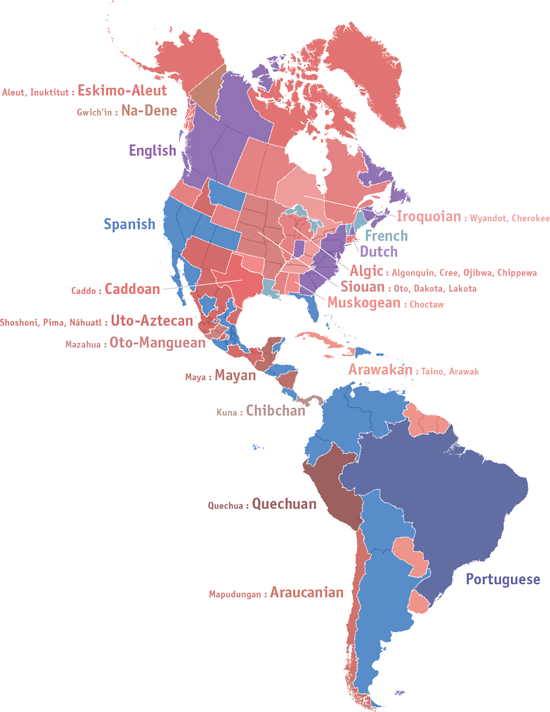
Bill Rankin, 2003
Two kinds of colonial naming: erasure and appropriation. But when it's always the colonists doing the naming, is one really preferable to the other? The recently created Nunavut (Inuktitut for "our land") is perhaps the only exception in the hemisphere.
Colored regions show names from the same language family (as categorized by the Ethnologue), and seem to indicate the rough extent of various tribes. But places like "Mississippi" (Algonquin for "large river") and "Wyoming" (Lenape for a grassy area) were moved thousands of miles by European settlers. (Lenape is also the source for countless Boy Scout camps in the heartland as well.) Compare this map to Wikipedia's reconstruction of pre-colonial language distribution: "Nebraska" erases the memory of its Caddoan speakers, and the use of the Iroquoian "Ontario" throughout that (very large) province does not acknowledge the traditional lands of the Ojibway nations north of Lake Huron.
Even a pejorative can become a proper name: "Huron" derives from a French slur for the hairy natives (it shares a root with "hirsute").
This is version 2.1, with a bipolar azimuthal equal-area projection.
